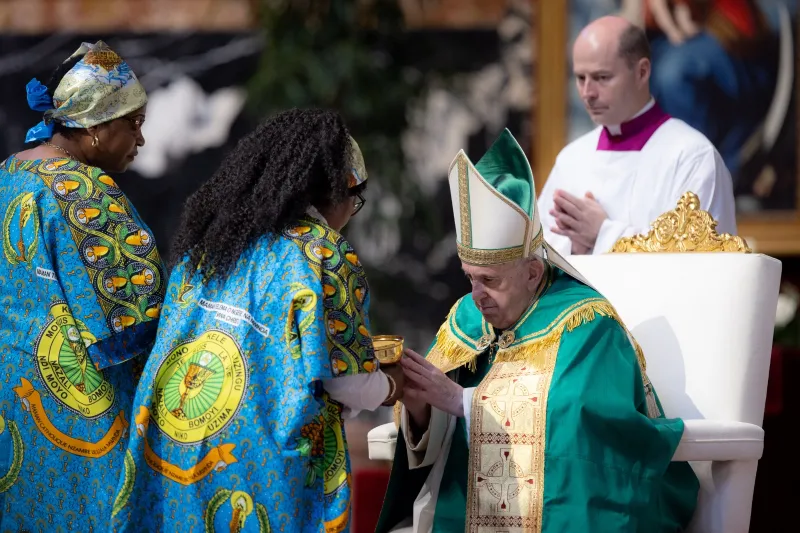
CNA Staff, Apr 8, 2021 / 13:00 pm America/Denver (CNA).
Pope Francis appealed for a global coronavirus recovery plan in a message to participants in the spring meetings of the World Bank and International Monetary Fund (IMF).
In a letter published by the Vatican April 8, the pope called for a comprehensive approach to rebuilding the world economy in the wake of COVID-19.
He said: “While many countries are now consolidating individual recovery plans, there remains an urgent need for a global plan that can create new or regenerate existing institutions, particularly those of global governance, and help to build a new network of international relations for advancing the integral human development of all peoples.”
“This necessarily means giving poorer and less developed nations an effective share in decision-making and facilitating access to the international market.”
The World Bank Group, founded in 1944, offers loans and grants to the governments of developing countries for capital projects. The IMF, formed in 1945, oversees the global monetary system. Both organizations are based in Washington, D.C.
The pope’s message was entrusted to Cardinal Peter Turkson, prefect of the Vatican’s Dicastery for Promoting Integral Human Development, to be presented during the April 5-11 meetings of the international financial institutions.
The pope wrote: “In this past year, as a result of the COVID-19 pandemic, our world has been forced to confront a series of grave and interrelated socio-economic, ecological, and political crises.”
“It is my hope that your discussions will contribute to a model of ‘recovery’ capable of generating new, more inclusive, and sustainable solutions to support the real economy, assisting individuals and communities to achieve their deepest aspirations and the universal common good.”
He added: “The notion of recovery cannot be content to a return to an unequal and unsustainable model of economic and social life, where a tiny minority of the world’s population owns half of its wealth.”
In the message, Pope Francis urged the World Bank and IMF’s experts to focus on “the interconnectedness between people.” Citing his recent encyclical, Fratelli tutti, he encouraged them to build a “culture of encounter” by including the marginalized in “long-term inclusive projects.”
The pope repeated his call for the cancelation of the debts of poor countries battling COVID-19, which he first made in his Easter “Urbi et Orbi” address in 2020.
If you value the news and views Catholic World Report provides, please consider donating to support our efforts. Your contribution will help us continue to make CWR available to all readers worldwide for free, without a subscription. Thank you for your generosity!
Click here for more information on donating to CWR. Click here to sign up for our newsletter.




The UN’s basic set-up and mandates (constitution, etc.) are being exceeded and contorted in a number of ways, both in its parts and as to its integrity as a whole. It can not be that foundations and core principles get removed because then in law and in practice there would be no UN left actually, only an arbitrary association of prevailing random powers and eclectic leaderships. It wants to come off as elegant but it is a very cruel reality.